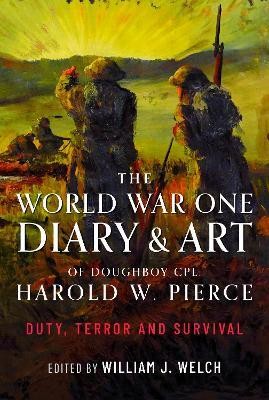The World War One Diary and Art of Doughboy Cpl Harold W Pierce(English, Hardcover, Welch William J)
Quick Overview
Product Price Comparison
April 1917. Eighteen-year-old Harold W. Pierce leaves school to join the U.S. Army, specifically the National Guard infantry company from heavily forested Warren County in northwestern Pennsylvania. He's big for his age and he's determined to serve his country. Thirteen months later, having trained at the steaming hot tent city of Camp Hancock in Georgia, Pierce and the rest of the 28th Division's 112th Infantry Regiment is on its way to England and then to France. He's one of the First Battalion's scouts so he'll see the war from a different perspective than the rest of the infantrymen, which includes his older brother Hugh.What Pierce sees, hears and feels will fill the small diary he keeps in his pocket. His descriptions become a diary of 79,000 words. His descriptions, his insights, his fears and his hopes bring the war to life as a young man experiences it. This young man, though, has a keen ability to express and describe that goes beyond his years: The abject terror of being in the middle of a sustained artillery barrage, his fear as he desperately tries to dig in as machine gun bullets fly inches over his head, and the relief he feels when an artillery round splits the air where he would have been if he had not - inexplicably - stopped walking.Pierce has moments when he does not want to answer the runner's call of his name, when all he wants to do is sleep in a safe shelter. But he does answer and he goes on the patrol that all are convinced will be a one-way mission.Pierce survives it all, becoming a state police trooper in Pennsylvania after the war and later the chief law enforcement instructor for that state's Public Service Institute until his retirement in 1966. In 1979, the diary was printed in serialized form in a small Pennsylvania newspaper. Throughout his life Pierce took to canvas to depict a variety of scenes from the World War. Included in this book are six of those paintings. Pierce died in 1983.


